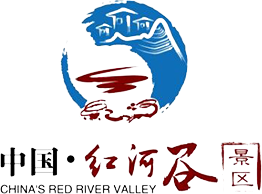Hello! Welcome to the official website of Honghe Ma Gang ancient city scenic spot!
The Millennium Horse Gang on the Ancient Road in West Yunnan
Release time:
2023-12-26 14:09
Horse caravan transportation became popular in Dali during the Han Dynasty, and even more so during the Nanzhao period of the Tang Dynasty. In the process of transportation, dozens or hundreds of mules and horses are often collected into a team, called "caravan".
For thousands of years, in the vast western Yunnan plateau, with high mountains and dangerous water, and rugged roads, transportation mainly depends on people carrying horses, and horses are the main means of transportation. The "Dali horse", which is short and capable, quick in action, and strong in endurance, has traveled across the Dali area in western Yunnan since ancient times, leaping and vigorous, trekking endlessly between the Shu-body Poison Road, the Bonan Ancient Road and the Tea Horse Road.
The "Dali horse" named after Dali, also known as Dian horse, is a famous ancient horse species in southwest China, referring to the horse species in Nanzhao and Dali. A few years ago, wild horse tooth fossils were found in Jianchuan and other places a million years ago, as well as domesticated horse species fossils 10,000 years ago, indicating that wild horse species existed in northwest Yunnan and were domesticated and raised. According to the records of "The Book of the Later Han Dynasty · An Di Ji" and "Gui Hai Yu Heng Zhi", "Dali horses are the most popular in the southwest", "they travel to the spring, like walking on the ground", "all the barbarians in the south are out of Dali, but the more northwest the land is, the better the horse is". This shows that the "Dali horse" as early as the Han Dynasty is known as a good horse. In the Tang and Song dynasties, "Dali horses" were exported to Myanmar, Persia and other countries. With the development of the horse industry, the horse market has been flourishing since the Han Dynasty, and Bashu merchants have traded horses in the border area. In the Tang and Song dynasties, "Dali horse" was known as a tribute horse for more than 2,000 years until the Qing Dynasty. In the Yuan Dynasty, Marco Polo, a famous Italian traveler, came to Dali and recorded in Marco Polo's Travels that he saw Yunnan people selling "Dali horses" to neighboring countries. It can be seen that since ancient times, "Dali horse" is one of the bulk commodities trafficked at home and abroad in Yunnan.
Youdao is the "mountain bell ringing horse gang", the ancient and modern famous "Dali horse gang" came into being. During the long historical period from the Song, Yuan, Ming, and Qing dynasties to the opening of the Yunnan-Burma Highway in 1938, in the hinterland of western Yunnan, where Dachuan is crisscrossing, high mountains and deep valleys, there is a "Dali Horse Gang" composed of "Dali Horse", which communicates with China and Myanmar, China and India, and connects Yunnan, Guizhou, Sichuan, Tibet, Guangxi and other provinces internally. The reddish-brown "Dali horses" run through the deep mountains, strings and groups, like the red currents in the mountains, transporting civilization to the plateau mountains, and promoting the material transactions and cultural exchanges between the Dali area and the border areas, the inland and neighboring countries. An important role.
In the past, there were many caravans in Dali, which were divided into large, medium and small caravans according to their sizes. There were hundreds of large caravans, dozens of medium caravans, and only three to five small caravans. They were mixed with donkeys and mules for short-distance transportation. According to their nature, they can be divided into two categories: official gangs and civilian gangs. The official gang mainly escorts the important materials of the official merchants. The people's gang is divided into franchise perennial caravan and seasonal temporary caravan. The franchise perennial caravan takes transportation as its business and is large in scale. The number of mules and horses can reach more than 100. The transportation route is long and the journey is long. Its organization is tight and its personnel have division of labor. The leader is called "Ma Guotou" or "Da Guotou". There are "Erguotou", "Sanguotou", "stealer" and other rules and jargon.
The accounting for the expenses of the caravan is "a man eats a horse's head", which means that each horse mule has to pay a share of the horse's material. The mules and horses carrying cooking utensils and food are called "empty carriers". The caravans travel long distances to eat and sleep in the open. Pots, pans, spoons, firewood, rice, oil, salt, sauce and vinegar must be prepared. Seasonal temporary caravans are mostly composed of service mules and horses raised by farmers engaged in agricultural labor. They usually go out to operate in the spare time. They are small in scale and the number of mules and horses is not large. They usually undertake short-distance transportation. When the farmers are busy, they break up and go home to engage in agricultural production and labor. There are also several caravans in partnership, commonly known as "patchwork gang" or "fighting gang". Especially when the caravan is on the road, who takes the gong pot (one gong pot can cook for 10 or 20 people), who takes the bucket and the bowl and chopsticks must be agreed in advance. The lantern is a necessary main lighting fixture, and each horse-driving person must bring their own. On the road, the horse gang will need four or five horses for "empty load" alone. The person who is responsible for the safety of the trip is called the "head stop", which is temporarily assigned by Ma Guotou among the horse drivers and is mainly responsible for the safety of the caravan and the selection of the camping site. The caravan slept rough on the way called "open light" or "fight wild". The choice of camp is generally not limited to the length of the distance, the main choice is good water, lush grass and shelter from the wind of the flat, rainy days also choose a certain slope of the flat, in order to prevent the flood attack.
Previous Page
Next Page
Previous Page
Next Page

Scenic Service Hotline
Service Hotline:0873-4522265
Service Mailbox:hhxltgs@126.com
Address: Dongmen Street, Honghe County, Honghe Hani and Yi Autonomous Prefecture, Yunnan Province
右侧在线客服组件
SAF Coolest v1.3 设置面板 TJBSX-ANBX-UAZXE-ASV
无数据提示
Sorry, the current column has no content for the time being.!
You can view other columns or returnHome Page



